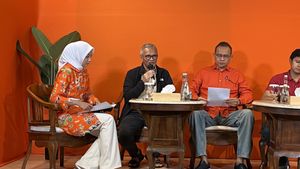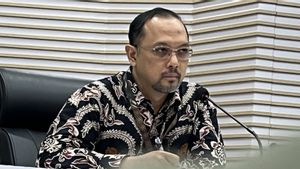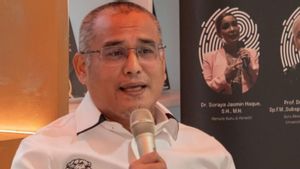JAKARTA - Intelligence gathered by United States forces, believed to be related to foreign military movements, is included in state secrets leaked by a recently fired Japanese Maritime Self-Defense Force (MSDF) captain, a government source said Tuesday.
The revelation that the captain provided classified information to a retired MSDF admiral has drawn criticism from the United States for the Self-Defense Forces' weak management of information, causing concern within the Japanese Government about the two countries' future cooperation, the sources said, reported by Kyodo News Dec. 28 .
In March 2020, Takashi Inoue, 55, disclosed classified information regarding the "situation surrounding Japan" and the operations and training of MSDF troops, according to the Defense Ministry.
The ministry said a former admiral asked the MSDF unit tasked with gathering and analyzing information in January 2020, to brief him on the latest state of security, but did not demand that classified information be disclosed.
While there is no evidence of information being passed on to others through the former admiral, there are concerns that the incident could impact the future provision of information from the United States, whose intelligence plays an integral role in the operations of SDF units, the source said.
At a press conference Monday, Admiral Ryo Sakai, chief of staff of the MSDF apologized for the incident, pledging to "work to restore the public's and other countries' confidence in the MSDF."
Meanwhile, Defense Minister Yasukazu Hamada echoed the sentiment at Tuesday's news conference, saying the leak "undermines public trust and is deeply regrettable.
"We take this matter very seriously and will do our best to restore confidence," he said.

Regarding the countermeasures to be drafted by the end of March, Defense Minister Hamada stressed the need to "take drastic measures, so that they are known throughout the Ministry of Defence," adding that stricter rules regarding interactions between active and non-active personnel were "added."
The Japanese Ministry of Defense sacked Inoue on Monday for allegedly leaking state secrets to an individual without security clearance, making it the first case of a secrecy law being imposed since it was enacted in 2014.
The Self Defense Forces criminal investigation unit referred captain Inoue to prosecutors for allegedly providing classified information to a former MSDF admiral who had retired from the force, according to the ministry.
He acknowledged the accusations were true, but there was no evidence that the information was passed on to anyone else through the former admiral, government sources said.
Information regarding the performance of the MSDF's defense equipment or the capabilities of Japanese troops was not among the secrets that were leaked, ministry officials told reporters.
As for the reason behind the request, the former admiral explained that he often gives public speeches so it is necessary to be informed about the current situation, according to officials.
The former admiral told Kyodo News he had never asked for state secrets and "didn't know which parts were state secrets."
The source also said the SDF investigative agency would investigate Former MSDF Chief of Staff Hiroshi Yamamura in relation to the leak of information by Inoue, one of his subordinates at the time.
SEE ALSO:
Admiral Yamamura commanded the MSDF from April 2019 to March this year, when he retired as an MSDF officer.
Under secrecy laws, civil servants and others who disclose sensitive information designated as state secrets, such as those relating to foreign policy, defense, counterterrorism and counter-espionage, can face up to 10 years in prison.
The law requires a security clearance for anyone who handles information that is considered a state secret.
The English, Chinese, Japanese, Arabic, and French versions are automatically generated by the AI. So there may still be inaccuracies in translating, please always see Indonesian as our main language. (system supported by DigitalSiber.id)


















